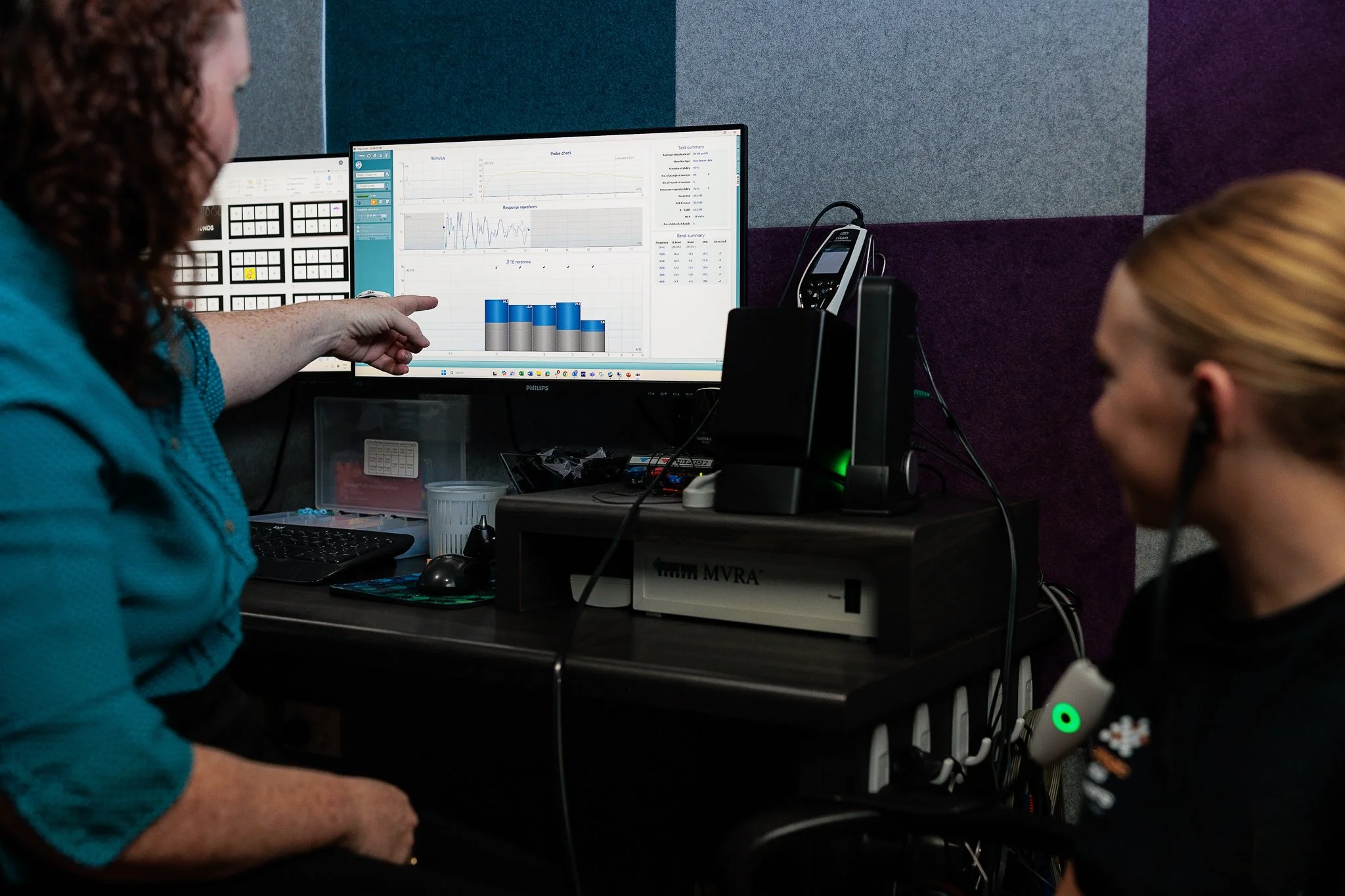How AP is tested
At Mackay Hearing, hearing levels are established, and a memory screening task is initially completed to establish your or your child’s eligibility to complete the auditory processing assessment. Auditory processing (AP) abilities are assessed over two appointments of 1-1.5 hours long. Regular listening breaks are offered throughout testing. An auditory processing test is non-invasive.
Questionnaires are provided for yourself and your child’s class teacher (if school age). These help to highlight your or your child’s listening behaviours as well as any concerns you may have about yourself or your child.
The assessment involves a number of listening tests that specifically target the different skills required for AP:
Decoding
Auditory discrimination
Listening in noise
Integration
Organisation
Spatial processing
Binaural processing
Auditory Memory
Some testing requires listening to sounds, words or sentences with or without background noise and either while wearing headphones or listening through a sound field speaker. Some testing requires working face to face with the tester and some testing relies on interacting with an iPad.
There is time at the end of the second appointment to discuss your or your child’s results. Occasionally it may be recommended that you or your child be assessed by another health professional following the AP assessment. You will be provided with a comprehensive written report outlining your or your child’s AP ability. A treatment plan is outlined in the form of recommendations made to target specific skills that fall outside age-appropriate normative data, and an information pack is provided that consists of information to support the treatment plan.
If you would like any more information on Auditory Processing Disorder (APD) symptoms, our treatment options, or how to prepare for your or your child’s AP appointment, please contact our friendly local team on 4952 4649 or email us at listening@mackayhearing.com.au


